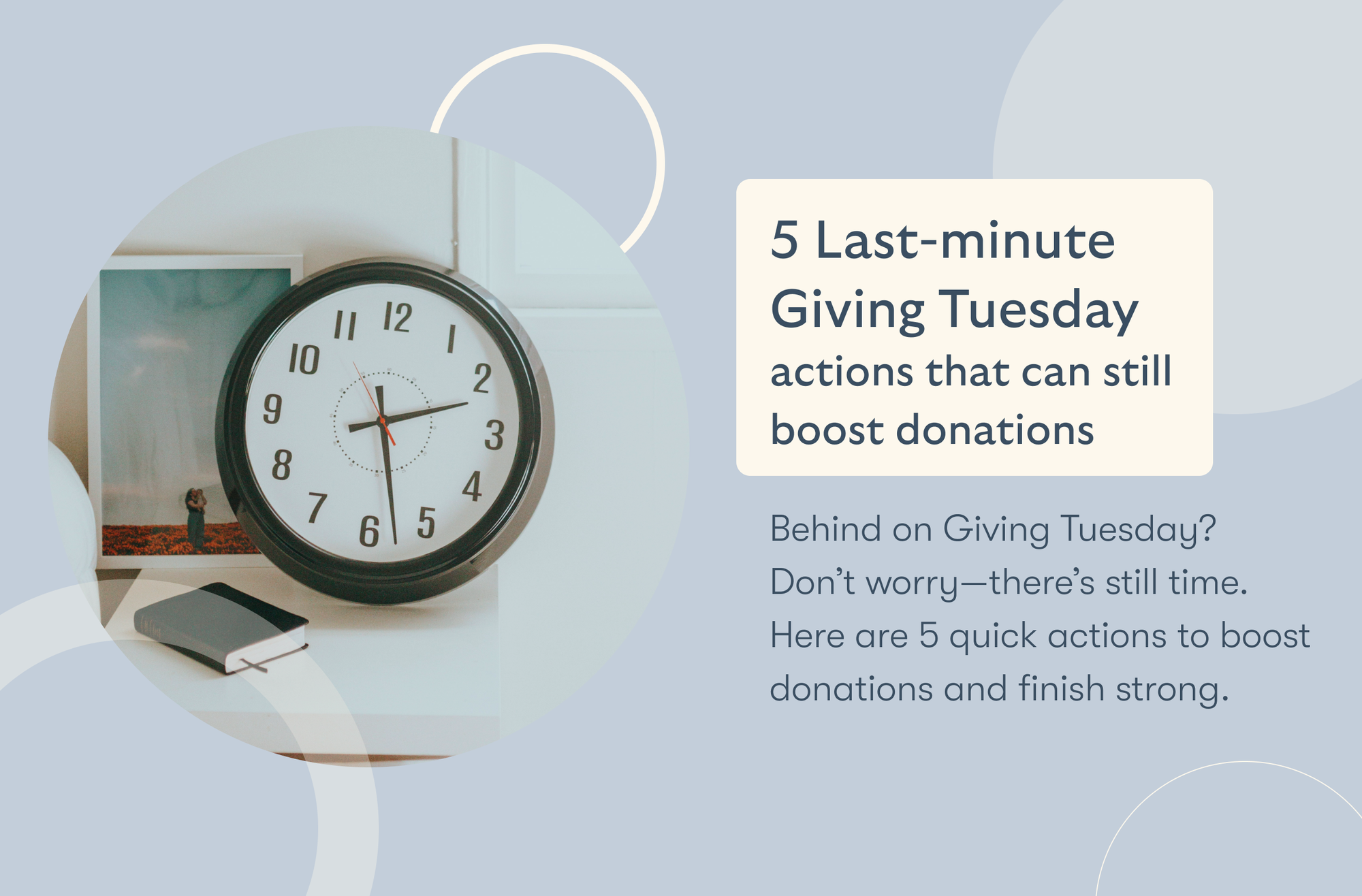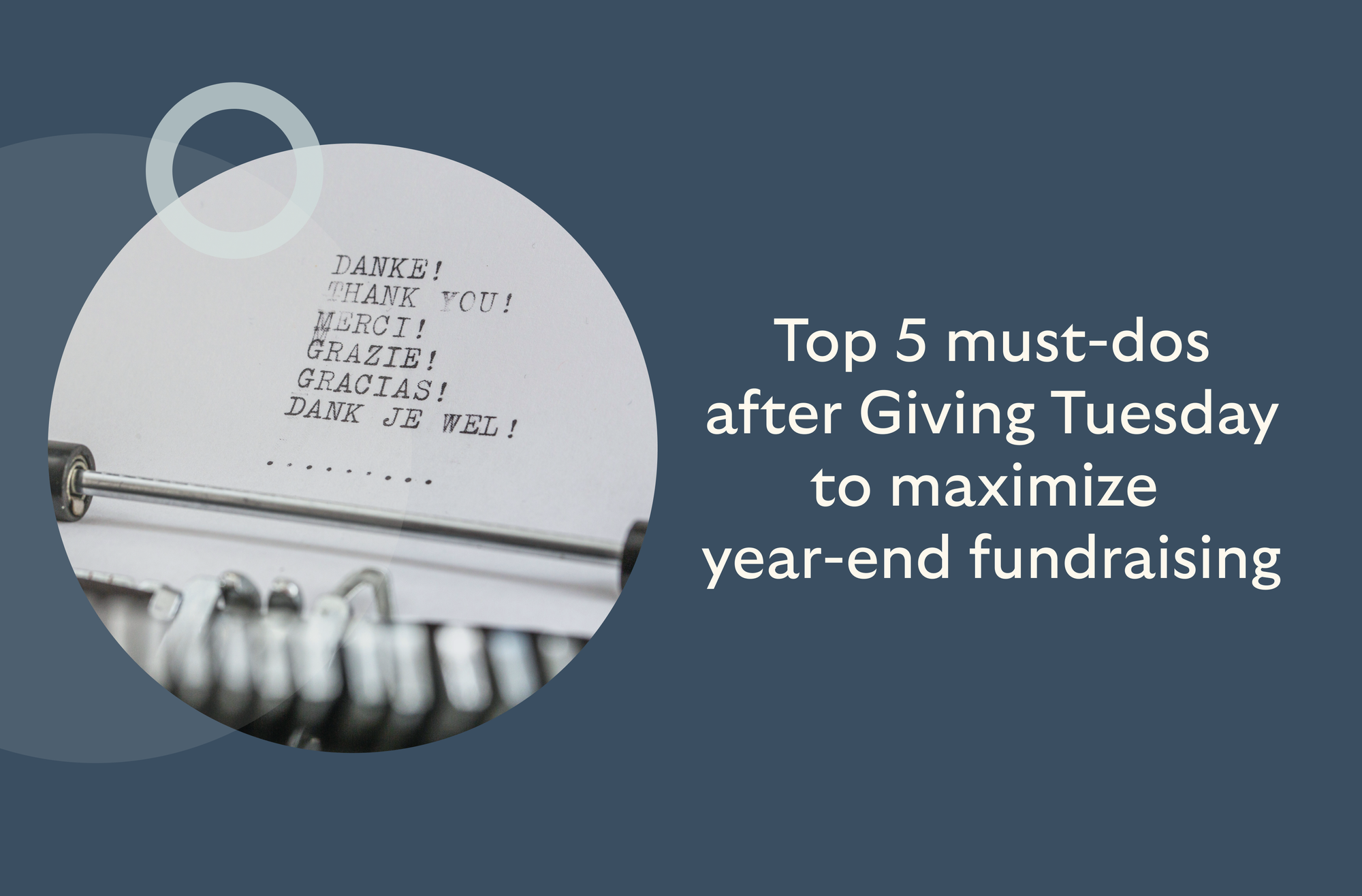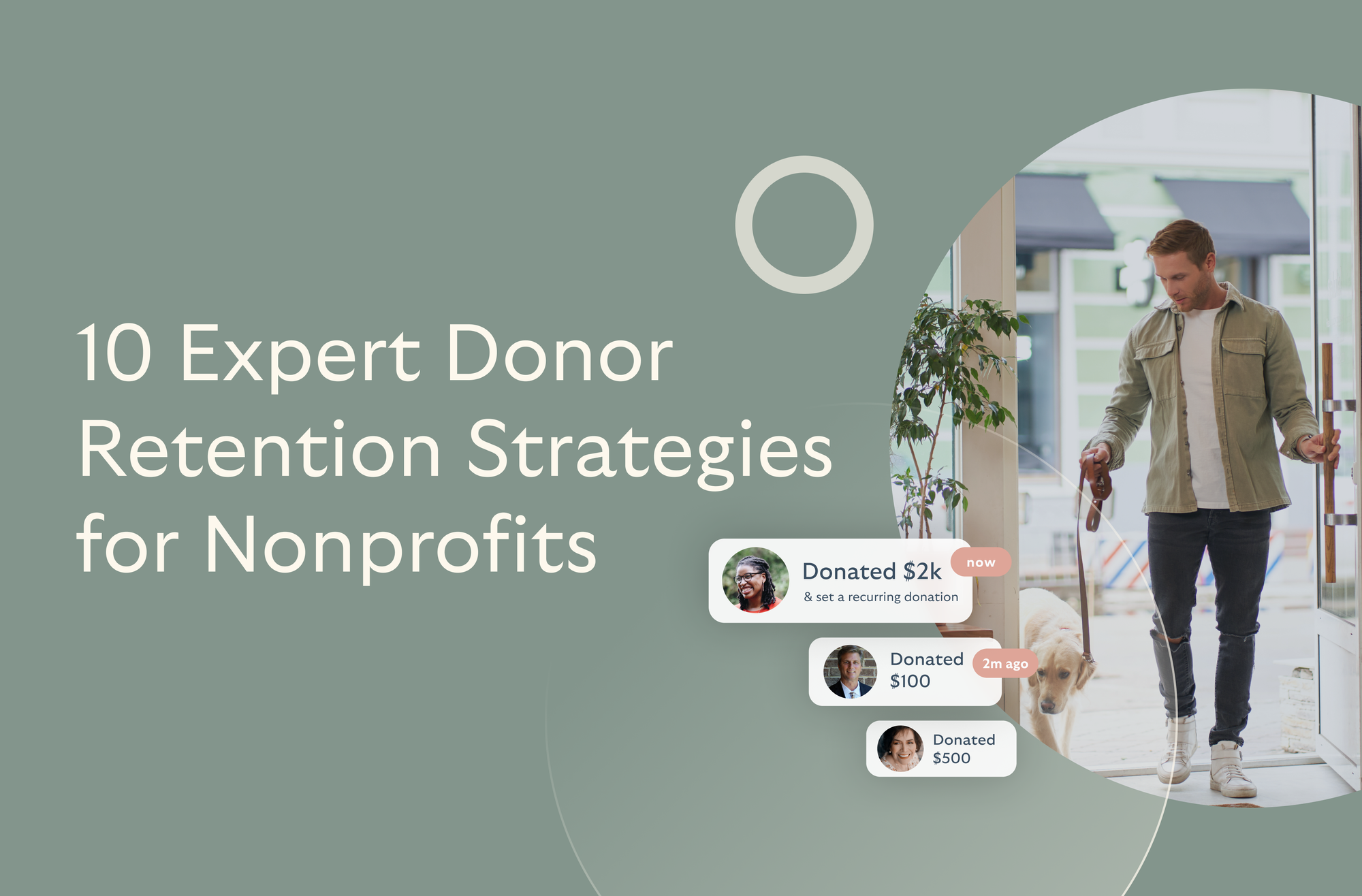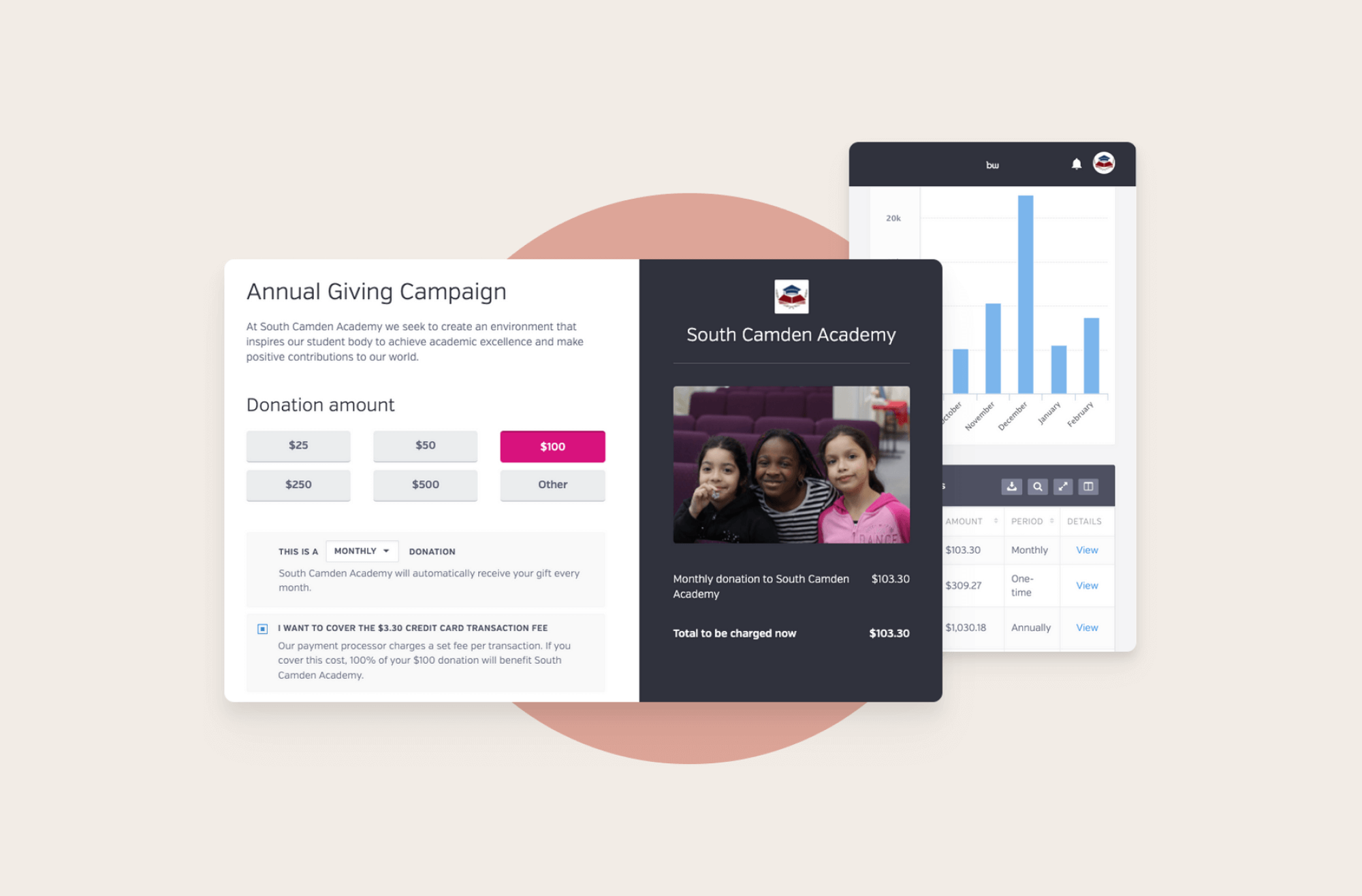Simplify donations with customizable default donation amounts
Streamline your processes and keep online and offline donations in one place
Engage with your donors with automatic updates
Give your donors the ability to donate once, monthly, or annually
15 Common Myths and Misconceptions About Asking for Donations
By Whit Hunter
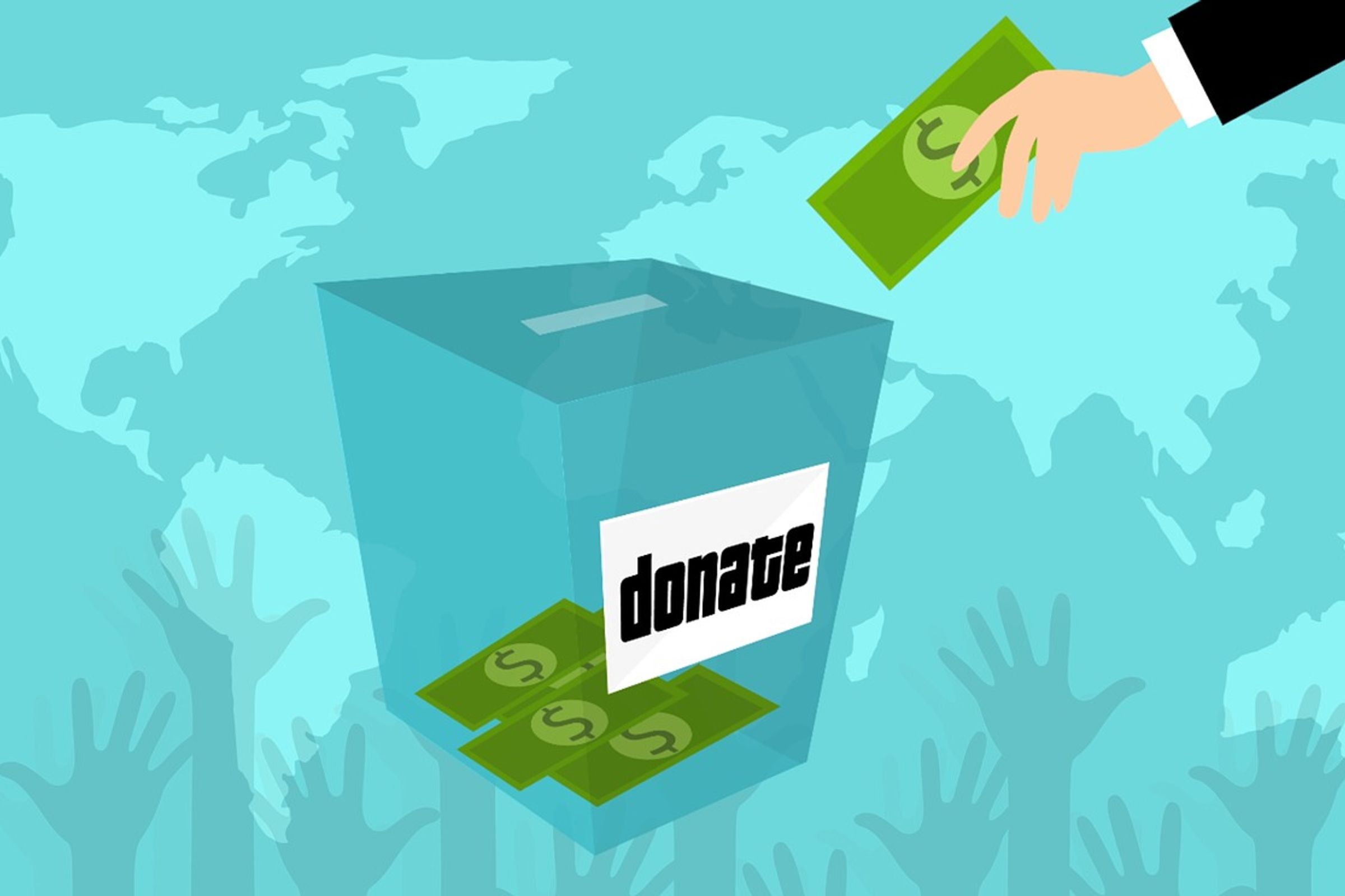
Even if it’s for a good cause or making a positive impact, asking people for their money is intimidating and difficult. But, to take things off the ground and to keep the operations running, you need resources. And as a nonprofit, you thrive on other people’s money, aka donations, so you need to make the ask.
When there’s a certain fear attached to an act, the human mind does a lot of overthinking and comes up with things that don’t really exist.
This is how myths take place. The myths around fundraising make the process of asking for donations more of an uphill task than it already is.
But fear not, in this blog, we’ll bust some of the myths about asking for donations and provide practical tips for overcoming them. So, if you’re ready to conquer your fears and start raising funds like a pro, keep reading!
Before you proceed, if you want someone to do the heavy lifting for you, you can join BetterWorld. We will help you build awareness while increasing donor engagement and online giving with a professionally-branded online fundraising platform.
What is Objection Handling in Fundraising?
Before we look at some of the misconceptions, we need to get this one process out of the way, i.e. objection handling. You need to know that objections are a part of life, and they are aplenty in fundraising.
Before donating their money to your organization, people will raise objections and ask all kinds of questions. They may even say a hard no for various reasons like “We have donated for another cause,” or “We need to think about it.” But as a nonprofit worker, you need to take that as an opportunity to start a conversation and try to handle their objections as smartly as possible.
You can do so by knowing these details of your cause: “who” you’re serving, “what” will the money be used for, and “why” you need the money. Once you’ve got a grip on these three Ws, it’ll be easy for you to handle any objection that comes your way, and it won’t be difficult for you to explain the reason behind your ask.
Now that we’ve covered the aspect of handling objections, let’s move on to some of the common myths about fundraising.
Myth #1: Asking for Donations is Begging
Reality:
Fundraising is all about making the ask. And while you’re at it, you might feel like you’re begging for someone’s money, but that's the farthest from the truth.
Asking for donations is not about begging or pleading for money. In fact, it's about making people understand how they can make a positive impact with their money.
Now before you overwhelm yourself with negative self-talk about not doing enough, you need to know that in the beginning, it’s completely normal to feel uncomfortable asking for money.
While it’s certainly not easy to put yourself out there and ask people to help you, it's important to remember that asking for donations is not about begging (unless you make it so).
It's more about telling a story, building relationships with supporters and donors, sharing your passion, and inspiring others to join you in making an impact.
Myth #2: Asking for Donations is Rude and Pushy
Reality:
You may have a fear that asking for donations could make you sound rude or pushy and that you might come across as annoying or even desperate. This thought is stronger when you’re doing it as part of your job, say as a cashier at a retail store.
However, you need to put these thoughts to rest, or else you won’t be able to succeed in your mission.
The key to being successful in asking for donations is to do it courteously and professionally. This means being clear and direct about your fundraising goals but also being respectful of people's time and resources.
Another way to go about asking for donations is to be specific and transparent about how the funds will be used. Donors want to know what their money is being used for and how they’re helping bring positive change in the world.
If you nail that, you’ll nail everything else, too.
Myth #3: Asking for Donations Makes People Uncomfortable
Reality:
This myth may have some truth to it, but it’s not that people get uncomfortable when they’re asked to donate, in fact, they feel bad about saying no. It’s common knowledge that fundraisers support a cause, and saying no to nonprofits asking for help makes people feel guilty.
It's important to remember that not everyone will react the same way. Some people may feel uncomfortable, but others will appreciate being asked and may even feel honored to be allowed to make a difference.
You must also remember that you will never get a “yes” if you never ask. So don't let the fear of making someone uncomfortable discourage you from asking for donations. Focus on the impact that all the “yeses” can make on your fundraising goal.
Myth #4: People Will Say No if I Ask for a Donation
Reality:
Nora Robert says, 'If you don't ask, the answer is always no.' But if you do, it could be a yes. So as a nonprofit worker, your focus should be on getting those yeses. You need to remember that each no will get you closer to a yes, so keep going until you get there and continue till you reach your fundraising goal.
Also, even after a no, people may still be willing to support your cause in other ways, such as volunteering or spreading the word. You must approach asking for donations as a conversation, not a one-time request, and focus on building relationships with potential donors rather than just asking for money.
Myth #5: I Don't Know Enough About the Cause to Ask for Donations
Reality:
You might think that you need to know anything and everything about a cause before making an ask for a donation, but that’s really not the truth.
The thing is that when you start, you’re not going to have complete grip over a cause and you’ll gradually learn the details of it.
And if you never start, you’ll never progress.
So always remember: you don't need to be an expert on the cause to ask for donations, just know that having a basic understanding of the organization's mission, goals, and how donations will be used can go a long way in building trust and credibility with potential donors.
Myth #6: I'm too Young/Old/Inexperienced to Ask for Donations
Reality:
While some may believe that age or experience can limit one's ability to ask for donations, the truth is that passion and dedication to a cause are the most important factors.
For example, Greta Thunberg, a teenage climate activist, successfully raised funds for her climate strike movement and encouraged donations to organizations fighting climate change. Despite her young age and lack of experience in fundraising, she was able to effectively communicate the urgency of the issue and inspire people to support the cause because she had a passion for it.
Myth #7: People Will Think Less of Me if I Ask for Donations
Reality:
No, that’s not the truth. This is one of those things our mind makes up when it overthinks.
The reality is people tend to respect and admire individuals who are passionate about a cause and take action to make a positive impact. By asking for donations, you demonstrate your commitment to the cause and your willingness to take action to make a difference.
Of course, it's important to approach asking for donations professionally and respectfully, but there's no need to worry about people thinking less of you because most of the time, “it's all in your head!”
Myth #8: I Don't Have the Time to Ask for Donations
Reality:
It’s okay if you don’t have all the time in the world to raise funds for a cause. What you can do is dedicate some of your free time to asking for donations, because don’t forget it’s the donations that support your cause and keep the nonprofit running.
If you’re in a race against time, then you can enlist the help of volunteers or other team members to help with fundraising efforts. And remember, every donation counts, so even if you can only spare a few minutes a day, it's worth the effort.
Myth #9: Asking for Donations is Only for Extroverts
Reality:
No, it’s not. You know, while introverts may not speak as much as extroverts, they can still be powerful communicators because they listen and observe. This is what gives them an edge at asking more thoughtfully and empathetically.
When they listen and observe, they get to understand the potential donors better and even tackle their reservations in a more meaningful way.
While extroverts may be more comfortable at reaching out and starting conversations, introverts can be highly organized and detail-oriented. This can be helpful when it comes to managing donor information and keeping track of fundraising goals.
And while they may not always be the loudest voice in the room, introverts can use their strong communication skills to connect with donors on a deeper level and make a lasting impact.
Myth #10: Asking for Donations is Always Successful
Reality:
Nothing in the world guarantees 100% success, and the same is the case with fundraising and asking for donations. You won’t be successful every time, and you will get a lot of no’s in the process. Be ready for that, and don’t let that discourage you.
There are plenty of factors that can impact the success of your fundraising efforts, such as the financial situation, competition with other causes, and the specific strategies and tactics that you use.
For example, if you're targeting a donor who has limited financial resources or who has already given to multiple other causes, they may not be willing to help you at a time when you ask them.
Similarly, if you're relying solely on a single fundraising method, such as email outreach or social media appeals, you may not be able to reach all of your potential donors or persuade them to give.
Myth #11: Only People in Powerful Positions Can Ask for Donations
Reality:
While it’s true that leaders have more influence on people than other members of a nonprofit organization, that doesn’t mean they’re the only ones who can ask for donations. As long as a member or a volunteer is passionate about a cause and is aware of the who, what, and why behind that cause, they can totally make the ask through any of the decided mediums. You just need to have it in you to convince others to give.
Also, as they say, the more the merrier. The more people soliciting donations, the faster you will reach your fundraising goal, and what’s better than that?
Myth #12: There’s Only One Correct Method for Soliciting Funds
Reality:
Far from the truth. There’s never been one way of doing things the right way for anything, ever. Also, what may have worked for you in the past might not work the next time, so your best bet here is to keep trying new ways and modifying old ways with changing times to see better results.
To nail your ask, you first need to identify the scope of a fundraiser and your target audience to see which method to go with.
The key is to be open to trying new approaches and adapting your fundraising strategy. By doing so, you can increase your chances of reaching your goals and making a real impact.
Myth #13: You Only Need to Tell a Story to Make People Donate
Reality:
Storytelling is the name of the game in fundraising and convincing people to take out their credit cards to press that “donate now” button. But, stories alone won’t take you far and you will have to back your stories with numbers. You will have to show people how their donations are making an impact on people’s lives, the endangered species, the climate, etc.
There’s a real need to back stories with social proof and data to make people trust you and your organization with their money.
Myth #14: One Donation Won’t Make a Difference
Reality:
Taking the words of Aesop and tweaking them a little gives us this phrase, “every act of charity, no matter how small, can make a difference.” Taking this into account, it would be completely wrong to assume that one donation won’t make a difference.
You never know, that one donation could be enough to make you cover a big percentage of your fundraising goal. Therefore, you must never underestimate the power of a single donation.
Once done effectively, even one donation can make a huge impact.
Myth #15: Fundraising is Only About Asking for Money
Reality:
No, it’s not.
People can choose to donate in the form of cash, volunteer hours, and in kind.
They may choose to give in-kind donations that can include goods or services that the organization may need but may not have the funds to buy, such as office supplies or professional services like legal or accounting.
On the other hand, people can choose to volunteer hours for your organization and provide additional manpower to complete tasks that might otherwise require paid staff.
Want to raise more Donations? Try BetterWorld’s Donation Tool for FREE!
Closing Thoughts on the Myths of Asking for Donations
There’s a strong need for busting myths about asking for donations because they come in the way of people utilizing their full potential while raising funds. This is why people need to understand that the myths are not entirely true.
Nonprofit workers, especially, shouldn’t let those myths discourage them from getting those resources to hit the ground running.
However, if you still need help, then you can sign up with BetterWorld to get access to our easy-to-use tools to raise money online in less time.

Join 105,000+ amazing nonprofits, organizations, and fundraisers on BetterWorld

Let our FREE fundraising tools help you raise more funds with less effort

